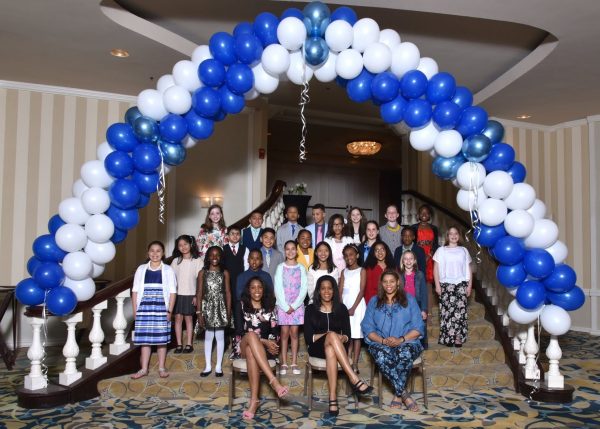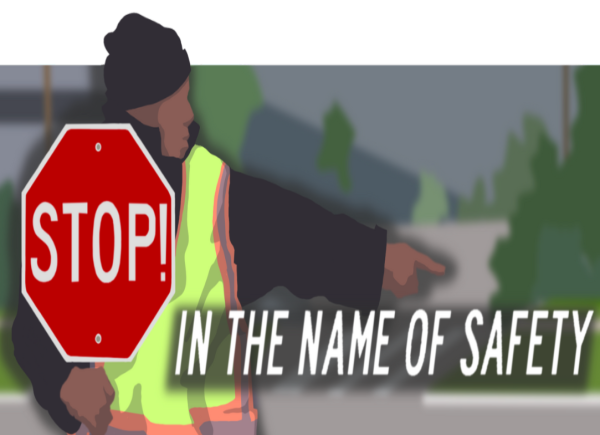Language teacher and alderperson shares passion for civic engagement
The Evanstonian was privileged to speak to Clare Kelly (Delgado), an ETHS Spanish teacher and the first ward alderperson, about the intersection of civic engagement with both of her careers.
Q: What was it like running for an alderperson position while also being a teacher?
A: That was very difficult, but I had wonderful students and we were online, so I saved time in terms of traveling back and forth. [I spent] more time preparing for classes because [e-learning] was a new format, but, just like this year, my life was around the clock. It’s pretty non-stop.
Q: What was it like transitioning into being an alderperson while still teaching?
A: This year, I had to give up my personal life [almost] entirely. That’s what it means more than anything else. It means that I’m working in the evenings, getting up very early to respond to constituent emails, as well as preparing for the next city council meeting. I chair a couple of committees, so I’m constantly preparing during every extra moment I get outside of class time [or] anything related to school. That’s my life right now: City Hall and ETHS.
Q: What has your experience as an alderperson been like? What does the job entail?
A: The council member job entails issues related to the entire city, like right now, we’re working on passing a budget for next year which will impact everybody. I helped to form a brand new finance and budget committee. I’m comparing budgets of other cities to see how they do that, so that’s been really important. For me, that’s one of the reasons I ran. Evanston is a very expensive place to live, and I ran because I feel that we need to make Evanston more affordable so people don’t feel like they have to move out. And then another huge chunk of the time is [dedicated to] constituent issues in the first word. I also have downtown Evanston, which takes up a lot of my time. We’re trying to figure out now how we can get our downtown vibrant again. And so working on initiatives on that front as well, that also impacts the whole city. I want to make sure I’m always representing the people in my ward, but also the people of Evanston.
Q: How do you connect the political side of your career with the teacher part of your career? Do you think the two are connected or do you try to connect them in any way?
A: I see them both as a community, and in both of my approaches, I think it’s so important to relay to people that this is our community together. [This helps us] make sure that we’re progressing the city in a way that reflects the interests of the community. I think the school is part of that community, and I don’t see it as hierarchical. I always want to be working hand-in-hand with the residents to make sure I’ve got my finger on the pulse of their sentiments. I never want to be working in isolation. I feel that deep sense of community and also just deep love. I’ve been in Evanston for 50 years. I really do love this community and this school, so I’m deeply attached to both in a very emotional way.
Q: Do you value civic engagement in the classroom? If so, how do you implement it?
A: I value [civic engagement] very, very much. That’s one of the reasons I ran [for alderperson], and I feel like we really need to honor and respect and encourage greater civic participation. I think people need more of a voice and a vote, and I feel like often residents have not felt listened to, or if they’ve spoken out, no one reacts. I think people need more of a voice and a vote. And I feel like often residents have not felt listened to, or if they’ve spoken out, they’ve been heard, but no one reacts. That’s absolutely one of the reasons I ran. I think we are a stronger city if we are working in conjunction with the residents. I feel like we get to a much stronger and more informed place by keeping the line of communication open with residents.
Q: How do you hope to see other teachers implement civic engagement in the classroom?
A: I’d like to see teachers bringing awareness to the issues of the day in class, providing a venue where students feel comfortable to genuinely express their ideas and then helping to provide guidance as to where [students] can take their ideas or concerns in order to implement the kind of change they’d like to see. I’d love to see our school board representative speaking, as she did recently, about the issue that recently happened at our school. I love to see student voice because that really can have [an] impact. In the classroom, I think [it is important] to open up those venues for conversation on current events and issues and encouraging students to take it to the next level, like the school board [or] city council. There’s so much that students can get involved in.
Your donation will support the student journalists of the Evanstonian. We are planning a big trip to the Journalism Educators Association conference in Philadelphia in November 2023, and any support will go towards making that trip a reality. Contributions will appear as a charge from SNOSite. Donations are NOT tax-deductible.









